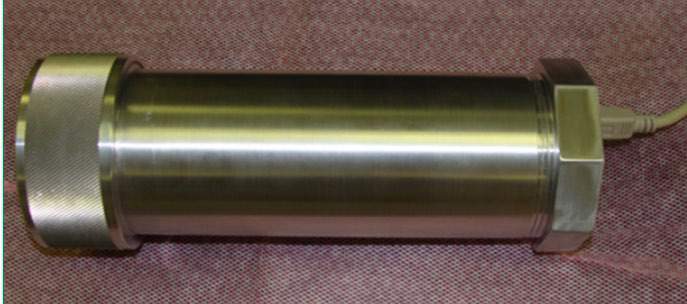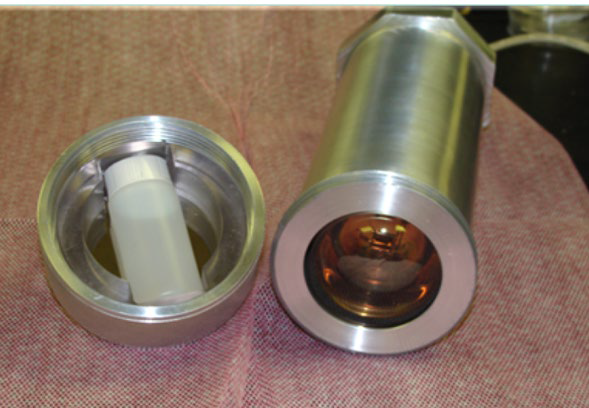Tech Briefs
Savannah River National Laboratory
Portable Rapid Tritium Analysis System (PoRTAS)
Researchers at the Savannah River National Laboratory (SRNL) have developed a system and method to measure tritium and other beta and/or alpha particles in the field.
Background
Radionuclides naturally decay according to known and predictable decay chains, producing alpha, beta, and/or gamma emissions. A solid state scintillation detector generally encloses the scintillator and photomultiplier to prevent the sample from contaminating the scintillator and to prevent exposing the photomultiplier to ambient light. Although gamma emissions can readily penetrate the barrier, low energy beta and alpha emissions are not able to penetrate the barrier to reach the scintillator. As a result, solid scintillation detectors are not suited for detecting and/or assaying low energy beta or alpha emissions.


At a glance
- Reduced concerns of sample flammability
- Permits molecular identification
- Improved detector sensitivity
- Permits analysis in humid environments
- Cost effective
- U. S. Patent 9,007,576
How it Works
Portable Rapid Tritium Analysis System (PoRTAS) was initially designed as a system to measure tritium in the field, however, its lightweight, compact, user-friendly design lends its use to other radionuclides that emit low energy beta and/or alpha particles as well. PoRTAS takes advantage of recently created small, solid-state photomultiplier tubes and multi-channel analyzers by combining them into a single package and then shielding the entire package from external light by wrapping it in an aluminum casing. The radionuclides in a sample are measured by placing an aliquot of the sample in a vial with liquid scintillation cocktail. The vial fits inside a screw cap at the end of the instrument casing. When the cap is attached, the entire device is light-tight. The photomultiplier tube and multi-channel analyzer are controlled by a small computer. The results from using PoRTAS to measure tritium show it is suitable for rapid analysis of radionuclides in the field.
Partnering Opportunities
SRNL invites interested companies with proven capabilities in this area of expertise to develop commercial applications for this process under a cooperative research and development agreement (CRADA) or licensing agreement. Interested companies will be requested to submit a business plan setting forth company qualifications, strategies, activities, and milestones for commercializing this invention. Qualifications should include past experience at bringing similar products to market, reasonable schedule for product launch, sufficient manufacturing capacity, established distribution networks, and evidence of sufficient financial resources for product development and launch.
Download Tech Brief
Contact Information
Savannah River National Laboratory
E-mail: partnerships@srnl.doe.gov